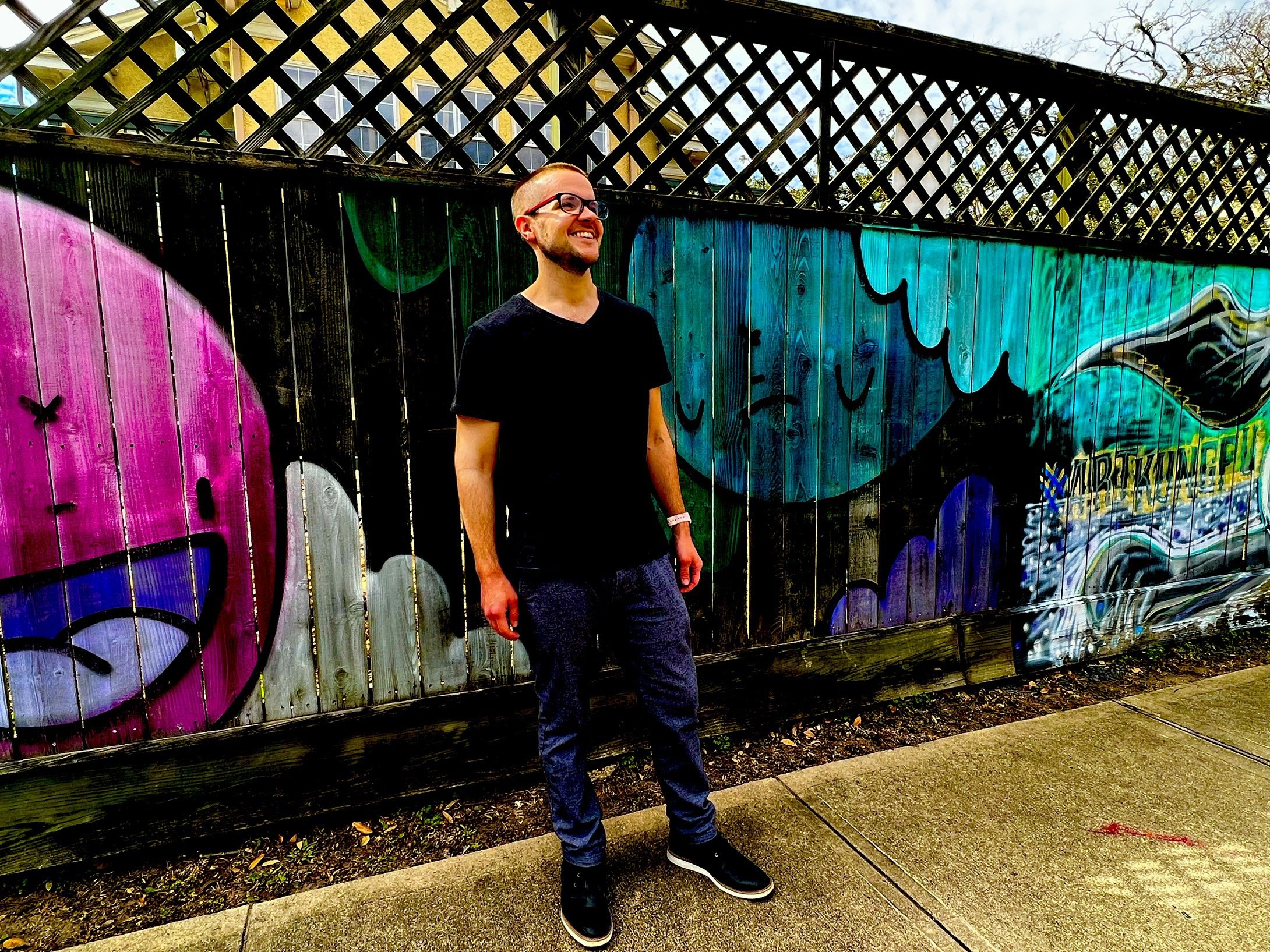
Gay therapist.
Cat dad.
Beyhive.
My Story
During my sophomore year of high school, I enrolled in my first psychology course. On the first day of class, my teacher described the fundamental attribution error, which refers to the tendency for individuals to attribute other people’s behavior to their personalities while attributing their own behavior to situational factors. In order to illustrate this concept, she used driving as an example. When another person cuts you off while driving, you are likely to assume that person is reckless, impatient, or self-centered. However, if you cut someone else off while driving, you are likely to rationalize this as a mistake that occurred due to being distracted. This scenario felt so relatable (among other things, I was voted “Worst Driver” in my high school yearbook, but that’s a story best saved for another day) that I was instantly able to apply this concept to my own experience, and I left that first class with new language that allowed me to better understand myself and others. To put it plainly, I was hooked and couldn’t wait to learn more.
During that same year, I watched the movie It’s a Wonderful Life for the very first time. In case you haven’t seen it (in which case, I insist you stop what you’re doing and watch it this minute!!), the premise of the film is that the protagonist, George Bailey, receives the opportunity to see what the world would have been like had he never been born, and he subsequently comes to recognize the profound impact that he has had on the people in his life. After my first viewing of this film, I knew that I wanted to grow up to be like George Bailey and have a similar impact on my community as George had on Bedford Falls. Combining my newly discovered passion for psychology with my desire to have a positive impact on the people around me, I decided at the age of sixteen that I wanted to become a clinical psychologist.

My Education, Training, and Experience
After graduating high school, I left my small, rural hometown in Ohio to attend Tulane University in New Orleans, where I discovered the joys of beignets, Mardi Gras parades, and napping in between classes. During my first two years of college, I began a lifelong process of coming out to friends and family members as a gay man, and I became increasingly active in the LGBTQIA+ community. I ultimately graduated from Tulane University not only with a bachelor’s of science in Psychology and Sociology, but also with a clearer understanding of my identity and a desire to give back to a community that had taken me under its wings and given me my first true taste of belonging and acceptance.
In 2011, I moved to Portland, Oregon to attend graduate school at Pacific University, and I began my clinical training one year later. Over the next few years, I studied the science of psychotherapy in my courses, and I learned the art of psychotherapy while practicing under the supervision of several talented mentors across a variety of training sites, including community mental health centers and university counseling centers. Upon completion of my dissertation on the coming out process of gay and bisexual men, I left Portland to complete my pre-doctoral internship at the University of North Dakota. I completed graduate school and earned a PsyD in Clinical Psychology in 2017, and I subsequently relocated to San Antonio, Texas to complete my post-doctoral residency at UTSA.
Following residency, I moved to Houston, Texas to begin my career as a clinical psychologist, and I obtained full licensure in the state of Texas in March, 2019. One year later, I was introduced to the practice of telehealth due to the covid-19 pandemic. Although I was initially skeptical, I quickly came to realize that telehealth felt equally effective as in-person therapy (an observation that has been supported consistently by empirical research) and allowed me to reach clients for whom therapy had historically been less accessible. In particular, I realized that telehealth allowed me to work with LGTBQIA+ individuals across the country who, due to their geographical location and/or schedules, had limited access to inclusive and affirming mental health services. It was this realization that served as the inspiration for opening this practice. In 2024, I relocated to Chicago, IL and obtained licensure as a clinical psychologist in the state of Illinois on August 6, 2024. Although I am now located in Chicago, I still maintain a strong professional network in Houston, and my services are available to clients living in Illinois, Texas, and all PsyPact states (see home page for a complete list of participating states).
My Assistant
In addition to being a clinical psychologist, I am a proud cat dad. Although Queen has no formal training, I consider her my “therapy cat” because she likes to make her presence known during telehealth sessions and has become a familiar face to all of my clients. In our down time, Queen and I enjoy snuggling on the sofa reading Stephen King novels and watching the Real Housewives. We are both active members of the Beyhive.
